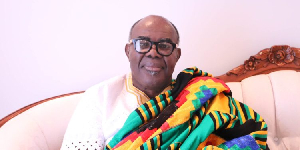
Former Attorney General and seasoned legal expert, Ayikoi Otoo, has expressed a firm stance on the debate over the Electoral Commission’s (EC) authority to re-collate election results.
In an interview on Saturday, he challenged assertions that the EC lacks such power, pointing to constitutional and legal provisions as the basis for his argument.
Citing Article 45(c) of the 1992 Constitution, he emphasised that the EC is mandated “to conduct and supervise all public elections and referenda.” This constitutional duty, he argued, inherently grants the Commission the authority to review and re-collate results if necessary.
He juxtaposed this with CI 127, subsidiary legislation governing election processes, asserting that constitutional provisions precede such instruments.
“I don’t agree with those who say the EC has no power. The Constitution is clear that the EC conducts and supervises elections. At the end of the day, the EC gazettes the results and forwards them to Parliament, so the final responsibility lies with them,” Mr Otoo stated.
He also highlighted the role of temporary staff, such as returning officers, who assist during elections. These individuals, he noted, operate under the supervision of district election officers and the EC, reinforcing the Commission’s overarching responsibility.
“When you’re suing over electoral issues, you don’t sue a returning officer; you sue the EC. This is because the Commission has the ultimate mandate. As long as Article 45(c) remains unamended, the EC retains the right to re-collate results,” he noted.
Mr Otoo’s remarks follow the National Democratic Congress (NDC) rejecting the re-collated parliamentary election results declared by the EC.
The re-collation process which took place at the EC’s Greater Accra Regional office on Saturday, December 21, saw five out of nine parliamentary results declared in favour of the New Patriotic Party (NPP).
In a statement issued by the General Secretary, Fifi Fiavi Kwetey, the party described the declaration as “illegal, manipulated, and a betrayal of Ghana’s democratic principles.”
They accused the EC, led by Jean Mensa, of undermining the integrity of the electoral process and compromising its mandate to serve the people fairly.
However, the EC has defended its decision to re-collate results in nine constituencies after they were initially declared, stating that such actions are not unprecedented in the country’s electoral history.